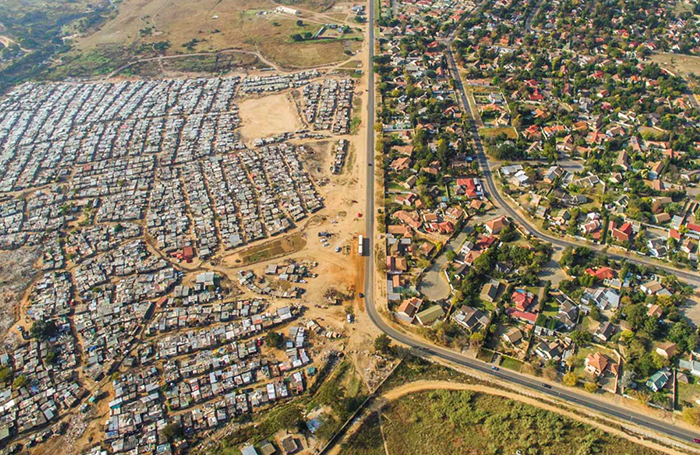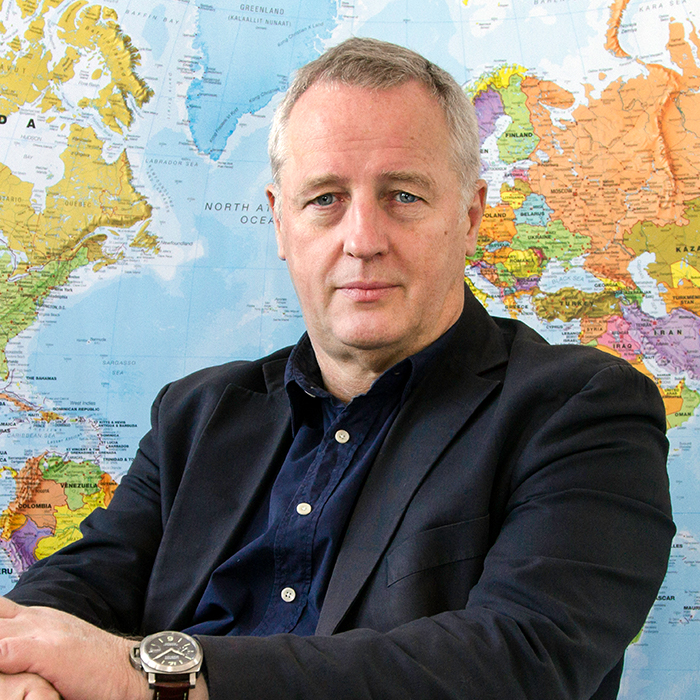The RIBA’s engagement with the Foreign, Commonwealth & Development Office’s (FCDO) Global Future Cities Programme originated in 2013 when I led a RIBA mission to Libya following the death of Muammar Gaddafi. The mission had been organised in response to a request for the RIBA to help the local architectural community establish the first professional institute for architects in the country.
During the course of the visit, meetings were held with a number of ministries which highlighted the urgent need for support with the reconstruction effort. A visit to the University of Tripoli also revealed a need to help strengthen the teaching faculty. Conversations with the British Ambassador led to the idea of seconding a Built Environment Adviser to help increase capacity. This was welcomed by the Libyans and proposals were developed, but later abandoned due to the deteriorating security situation.
This was to be the first in a series of events that led to recognition of the need for the RIBA to use its resources, its network, and its expertise to support those dealing with the challenges of urbanisation in all its many forms around the globe.

The second occasion arose following the Nepal earthquake in 2015 where nearly 9,000 people were killed and over 20,000 injured. The RIBA received a request for support from local charity Community Action Nepal and found itself working alongside members from the Institution of Structural Engineers. However, the scale of the disaster could not be matched by the scale of the response, which relied largely on the voluntary efforts of individual members.
Later that year, the RIBA was invited to sign a Memorandum of Understanding (MOU) with the Supreme Council for Planning in Oman. The aim of the MOU was to enable the sharing of built environment expertise to help tackle some of the challenges created by 40 years of rapid urbanisation in the Sultanate. It was the first MOU to be signed between the RIBA and a sovereign government. Around the same time, COP21 was being held in Paris and the 2030 Agenda for Sustainable Development was about to be launched at the UN General Assembly.
These experiences, combined with the international policy agenda, highlighted the need for UK built environment professionals to come together to respond more effectively to the needs of countries recovering from civil conflict, humanitarian crisis, or facing the challenge of rapid urbanisation, by working together with international development partners and humanitarian agencies such as the (then) FCO, DfID and UN-Habitat.
This led to the formation of the UK Built Environment Advisory Group (UKBEAG); a collaboration between the RIBA, the Royal Town Planning Institute and the Institution of Structural Engineers, and eventually the Landscape Institute. The UKBEAG was officially launched at Habitat III in Quito, Ecuador in 2016.
As a result of these engagements, the UKBEAG was invited to contribute to the inception phase of the Global Future Cities Programme, forming part of the Governments £1.3bn Prosperity Fund, itself a product of the 2015 UK National Security Strategy and Strategic Defence and Security Review. The Global Future Cities Programme recognises climate change as well as rapid and unplanned urbanisation to be among the many drivers of instability that need to be addressed and is targeting 30 projects in 19 cities in 10 "middle-income countries," arranged around three pillars: transportation, urban planning, and resilience.

In addition to its work on the Global Future Cities Programme, the RIBA is also, directly and indirectly, involved with a number of other programmes which aim to make a positive contribution in the field of international development, all of which are consistent with the findings of the RIBA Ethics and Sustainable Development Commission, that included a recommendation to: "Develop programmes to build international capacity in the built environment sector, to help drive sustainable development and ethics in practice, ensuring that these are both culturally and environmentally appropriate, and socially responsible."
For example, through its membership of the Commonwealth Association of Architects, the RIBA has contributed to the production of a Survey of Built Environment Professionals in the Commonwealth. It is projected that by 2050, nearly 50% of the world’s urban population is forecast to be located in the Commonwealth (that’s 1bn additional urban dwellers in the Commonwealth in the next 30 years), this is an issue of major importance for member countries.
The findings of the survey revealed there to be a critical lack of capacity in many Commonwealth countries which are rapidly urbanising and are among the most vulnerable to climate change impacts. This is paired with a corresponding lack of educational capacity to grow the profession fast enough to make up the deficit, and intensified by a perceived weakness in built environment policy (ie: planning policy and building code).
To place these findings in context, consider Uganda which is a country of over 45 million people urbanising at over 6% per annum, with only 221 architects and no recognised town planning profession. At the same time, consider that the International Energy Agency predicts there will be an additional 90 billion sqm of accommodation in Africa by 2060 (three times that which exists in Europe today) and that there are currently only two countries in Africa with mandatory energy codes: Morocco and Tunisia. The social and environmental consequences of failing to tackle these issues would have dire consequences in the long term.

Recognising the seriousness of the issues, and the scale and complexity of the challenges to be faced, the Commonwealth Association of Architects has come together with the Commonwealth Association of Planners, the Association of Commonwealth Universities, and the Commonwealth Local Government Forum, in collaboration with the Rwandan Government and The Prince’s Foundation to issue a call to action on sustainable urbanisation across the Commonwealth. The call to action recognises the need for an interdisciplinary cross-sector response and calls on heads of government to bring more focus on sustainable urbanisation when they meet in Kigali, Rwanda in June 2021 for the Commonwealth Heads of Government Meeting.
While the first responsibility for those of us living in the urbanised world must clearly be to address our own challenges, so must we support those countries which are rapidly urbanising to do so in a sustainable manner. Only by doing both together will we be able to meet our objective of leaving no person and no place behind. As we enter the Decade of Action to achieve the UN's Sustainable Development Goals, the RIBA and its members have a vital role to play.
Peter Oborn RIBA RIAS HonMRAIC HonMRTPI
RIBA Vice President International (2011-16), Inaugural Chair of the UK Built Environment Advisory Group (2016-18), Chair of the RIBA Ethics & Sustainable Development Commission (2018), Council Member, International Union of Architects, Senior Vice President, Commonwealth Association of Architects.









